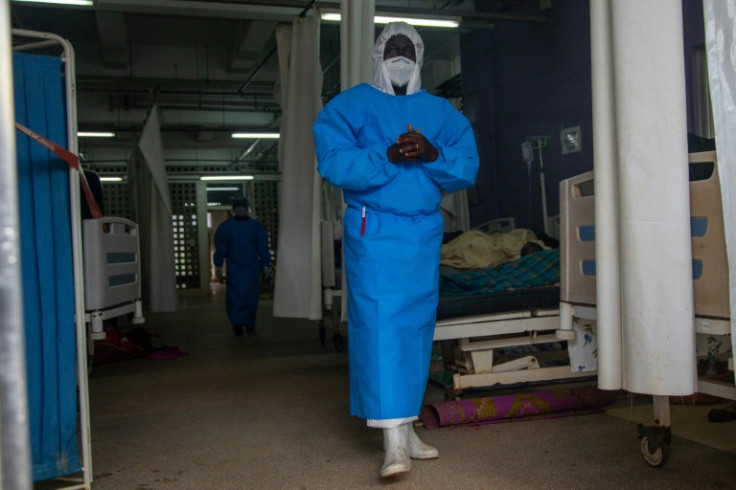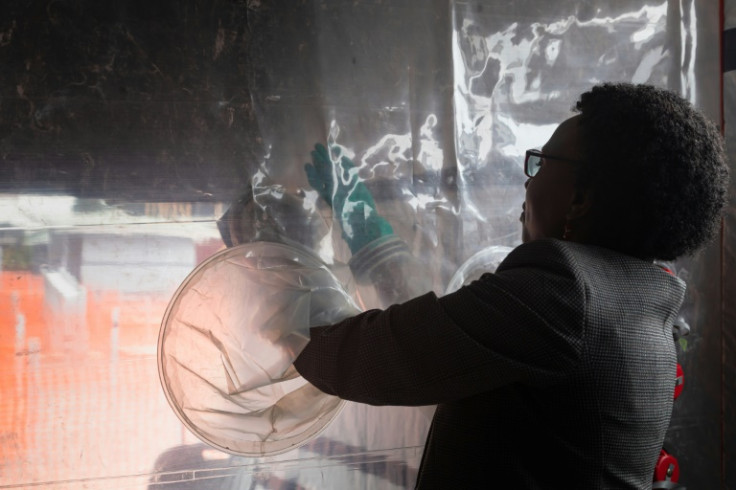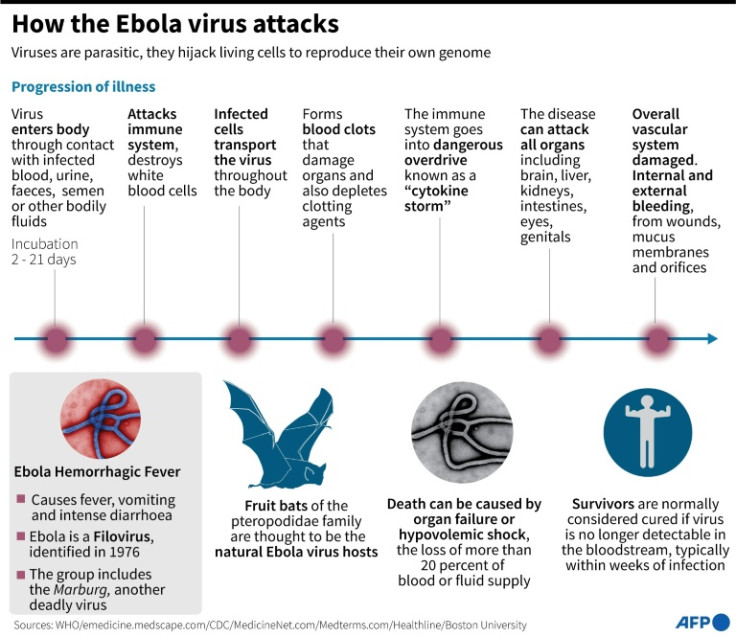Uganda Declares End To Deadly Ebola Outbreak

Uganda on Wednesday declared an end to an Ebola virus outbreak that emerged almost four months ago and claimed the lives of 55 people.
"We have successfully controlled the Ebola outbreak in Uganda," Health Minister Jane Ruth Aceng said at a ceremony in the central district of Mubende, where the disease was first detected in September.
The move was confirmed in a statement issued by the World Health Organization (WHO), whose chief Tedros Adhanom Ghebreyesus hailed the East African country's "robust and comprehensive response" to the widely-feared haemorrhagic fever.
Aceng said January 11 marked 113 days since the start of the epidemic, which also spread to the capital Kampala.
Under the WHO's criteria, an outbreak of the disease officially ends when there are no new cases for 42 consecutive days -- twice the virus's incubation period.
"Uganda put a swift end to the Ebola outbreak by ramping up key control measures such as surveillance, contact tracing and infection, prevention and control," the WHO statement quoted the minister as saying.
"While we expanded our efforts to put a strong response in place across the nine affected districts, the magic bullet has been our communities who understood the importance of doing what was needed to end the outbreak, and took action."
Two districts at the epicentre of the epidemic, Mubende and Kassanda, were placed under lockdown for two months until mid-December, but the government did not impose similar measures nationwide.
WHO said in total there had been 142 confirmed cases, 55 confirmed deaths and 87 recovered patients, with children among the victims.
Uganda's outbreak was caused by the Sudan Ebola virus, one of six species of the Ebola virus and for which there is currently no confirmed vaccine.
Three candidate vaccines -- one developed by Oxford University and the Jenner Institute in Britain, another from the Sabin Vaccine Institute in the United States, and a third from the International AIDS Vaccine Initiative (IAVI) -- are being trialled in Uganda.
"Uganda has shown that Ebola can be defeated when the whole system works together, from having an alert system in place, to finding and caring for people affected and their contacts, to gaining the full participation of affected communities in the response," Tedros said in the WHO statement.
The last confirmed patient was discharged from hospital on November 30, according to health officials.
"Two months ago, it looked as if Ebola would cast a dark shadow over the country well into 2023, as the outbreak reached major cities such as Kampala and Jinja, but this win starts off the year on a note of great hope for Africa," said WHO's regional director for Africa, Matshidiso Moeti.
Aceng said it was Uganda's seventh outbreak of the disease, and the fifth caused by the Sudan virus.
"The source of this outbreak like many others is still not known," she said at the ceremony.
Ebola is named after a river in Democratic Republic of Congo, previously called Zaire, where it was discovered in 1976.
The previous outbreak in Uganda, which shares a porous border with the DRC, was in 2019 when at least five people died.
Human transmission is through body fluids, with the main symptoms being fever, vomiting, bleeding and diarrhoea.
Outbreaks are difficult to contain, especially in urban environments.
People who are infected do not become contagious until symptoms appear, which is after an incubation period of between two and 21 days.
The deadliest epidemic unfolded in West Africa between 2013 and 2016, killing more than 11,300 people.
The DRC has had more than a dozen epidemics, the deadliest claiming the lives of 2,280 people in 2020.


© Copyright AFP 2024. All rights reserved.




















